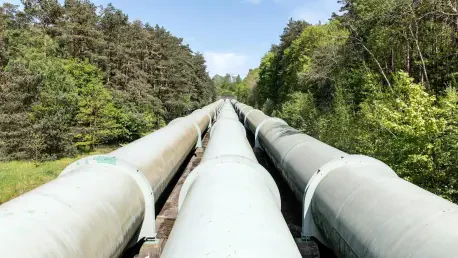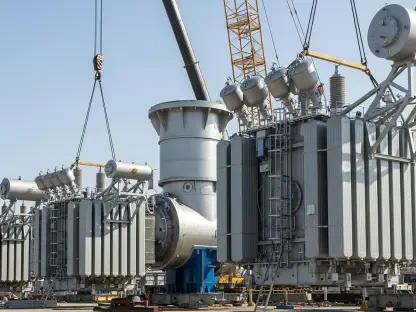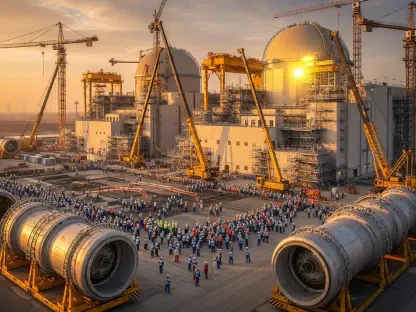In a significant development for global energy markets, Iraq, the second-largest producer in OPEC, stands on the brink of a landmark agreement to resume oil exports from its semi-autonomous Kurdistan region through a vital pipeline in Turkey. This route, known as the Kirkuk-Ceyhan pipeline, has remained inactive since early 2023 due to a web of legal and political disputes, creating a bottleneck that has kept substantial oil volumes off the market. The potential restart could inject at least 230,000 barrels per day (bpd) into global supplies at a critical juncture when OPEC members are ramping up production to reclaim market share. This progress offers a glimmer of hope for stabilizing Iraq’s oil revenue stream while addressing long-standing tensions between the federal government in Baghdad and the Kurdistan Regional Government (KRG). As negotiations near a conclusion, the stakes are high for all parties involved, with implications that could reshape regional economic dynamics.
Collaborative Efforts to Resolve Disputes
The path to restarting oil exports has been paved by intensified collaboration among Iraq’s federal government, the KRG based in Erbil, and international oil companies (IOCs) operating in the region. A tripartite agreement is taking shape, with Iraq’s cabinet granting preliminary approval to a restart plan that has gained tentative support from IOCs represented by groups like APIKUR, which includes companies such as Genel Energy and DNO. This marks a notable shift from years of discord, as all stakeholders have shown increased flexibility in recent discussions. The urgency to restore exports is driven by economic pressures and the strategic need to maintain a presence in the competitive global oil market. While challenges persist, the current momentum suggests a shared recognition of the mutual benefits of resolving these issues, potentially setting a precedent for future cooperation in Iraq’s fragmented political landscape.
Beyond the political alignment, the collaborative framework highlights a delicate balancing act of interests. Baghdad seeks greater control over national oil revenues, while the KRG aims to secure economic autonomy through its resource wealth. Meanwhile, IOCs prioritize payment security and operational stability to justify their investments in Kurdistan’s fields. The draft agreement reflects compromises on all sides, with discussions focusing on equitable revenue distribution and legal safeguards. Reports indicate that this is the closest the parties have come to a resolution since the pipeline’s closure, fueled by a collective desire to unlock the economic potential of the region’s oil reserves. However, the complexity of aligning these diverse objectives underscores the fragility of the current progress, as any misstep could derail the fragile consensus.
Details of the Proposed Export Plan
Under the proposed plan, the KRG would supply a minimum of 230,000 bpd to Iraq’s state oil marketer, SOMO, while retaining 50,000 bpd for local consumption. Exports from the Turkish port of Ceyhan would be handled by an independent trader using SOMO’s official pricing mechanism, ensuring transparency in transactions. A portion of the revenue, specifically $16 per barrel, would be directed to an escrow account for distribution to producers, with the remainder allocated to SOMO. This structure aims to address past grievances over unauthorized exports while establishing a sustainable model for future operations. Yet, a significant gap remains in the plan, as it lacks clarity on resolving approximately $1 billion in unpaid arrears owed to producers for the period before the pipeline’s shutdown. This unresolved financial issue looms as a potential obstacle to finalizing the deal.
Adding to the intricacy of the plan is the legal backdrop involving Turkey, which has been ordered to pay Iraq $1.5 billion for unauthorized exports spanning several years, a ruling currently under appeal. Despite Ankara’s expressed willingness to resume flows, the outcome of this legal battle could influence the timeline and terms of the restart. The proposed export framework seeks to navigate these external pressures by focusing on operational logistics and revenue sharing, but the lingering uncertainties highlight the multifaceted challenges at play. Industry voices, such as Luke Clements, CFO of Genel Energy, have acknowledged substantial progress in drafting agreements, yet caution that the deal remains incomplete. This cautious optimism reflects the broader sentiment surrounding the initiative, as stakeholders strive to balance immediate economic gains with long-term stability in Iraq’s oil sector.
Navigating Remaining Challenges and Future Outlook
Even as optimism grows, the road to restarting exports is not without hurdles. The unresolved financial arrears and Turkey’s ongoing legal appeal represent critical sticking points that could delay or complicate the agreement’s implementation. Additionally, the diversity of interests among Baghdad, the KRG, and IOCs necessitates careful negotiation to ensure all parties feel adequately represented in the final terms. The complexity of these issues demands a nuanced approach, as any perception of inequity could reignite tensions that have historically plagued Iraq’s oil industry. While the current draft plan offers a promising foundation, its success hinges on the ability to address these lingering concerns with transparency and mutual accountability, setting the stage for a sustainable resolution.
Looking ahead, the preliminary approval of the pipeline restart plan stands as a pivotal moment in overcoming an export halt that persisted for nearly 18 months. The potential to add 230,000 bpd to global markets through this northern route underscores the importance of the tentative consensus achieved among key stakeholders. Moving forward, the focus should shift to finalizing financial and legal details to prevent future disruptions. Establishing clear mechanisms for revenue distribution and dispute resolution could serve as a blueprint for managing similar challenges in other resource-rich regions. As Iraq navigates these final steps, the outcome is poised to influence not only its economic trajectory but also the broader dynamics of OPEC’s production strategy, offering valuable lessons for balancing national interests with global market demands.









